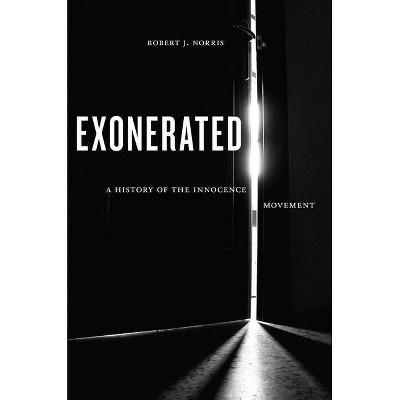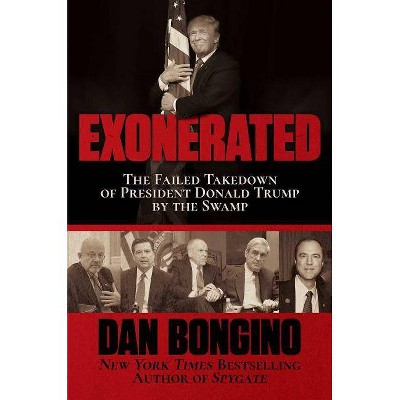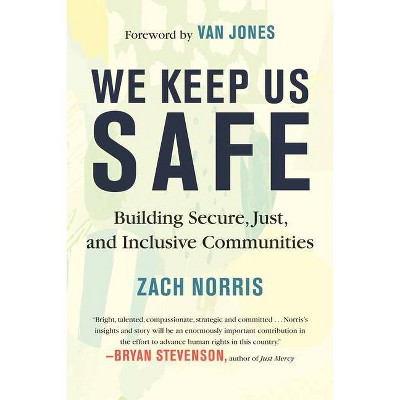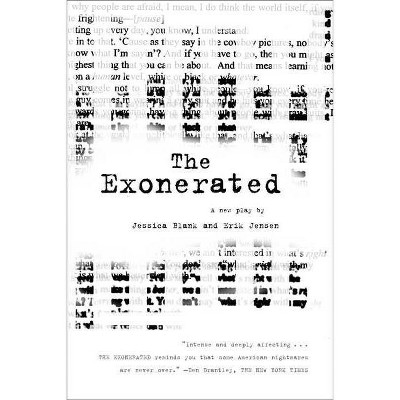Exonerated - by Robert J Norris (Hardcover)

Similar Products
Products of same category from the store
AllProduct info
<p/><br></br><p><b> Book Synopsis </b></p></br></br><p><b>The fascinating story behind the innocence movement's quest for justice.</b><br><b></b><br>Documentaries like Making a Murderer, the first season of Serial, and the cause célèbre that was the West Memphis Three captured the attention of millions and focused the national discussion on wrongful convictions. This interest is warranted: more than 1,800 people have been set free in recent decades after being convicted of crimes they did not commit. </p><p>In response to these exonerations, federal and state governments have passed laws to prevent such injustices; lawyers and police have changed their practices; and advocacy organizations have multiplied across the country. Together, these activities are often referred to as the "innocence movement." Exonerated provides the first in-depth look at the history of this movement through interviews with key leaders such as Barry Scheck and Rob Warden as well as archival and field research into the major cases that brought awareness to wrongful convictions in the United States. </p><p>Robert Norris also examines how and why the innocence movement took hold. He argues that while the innocence movement did not begin as an organized campaign, scientific, legal, and cultural developments led to a widespread understanding that new technology and renewed investigative diligence could both catch the guilty and free the innocent. </p><p>Exonerated reveals the rich background story to this complex movement.</p><p/><br></br><p><b> Review Quotes </b></p></br></br><br>[An] informative overview of the development of the innocence movement...A useful contribution to an important national conversation about crime and punishment.-- "Kirkus Reviews"<br><br>A timely and important new contribution to the literature, Exonerated is both an accessible history of the recent history of wrongful convictions, and a much needed analysis of the innocence movement as a social movement.--Simon A. Cole, author, Suspect Identities: A History of Fingerprinting and Criminal Identification<br><br>Carefully researched and elegantly written, this book calls attention to the importance of wrongful convictions for the death penalty and beyond. It shows how the criminal justice system is at the heart of efforts to achieve social justice. This is an important book.--Sister Helen Prejean, author, Dead Man Walking and The Death of Innocents<br><br>Exonerated delineates the origin story of the "innocence movement," a highly publicized pivot in legal circles in the late twentieth century toward the wrongful conviction of innocent persons. Robert J. Norris focuses mostly on the key players involved in the early days of using forensic DNA (deoxyribonucleic acid) to exonerate innocents ... Exonerated draws on social movements theory to explain in terms of political opportunities for legal reform, local actions of individuals and organizations, and the ways key players framed innocence to bolster its legitimacy.--The Journal of American History<br><br>Exonerated is the definitive account of how the innocence movement transformed public views about the everyday fallibility of the American criminal justice system in the late 20th century, and why preventing the wrongful convictions of the factually innocent remains more important than ever in the 21st century.--Richard A. Leo, author, The Wrong Guys: Murder, False Confessions and the Norfolk Four<br><br>Exonerated is the first serious, thorough history of the modern innocence movement. A major, innovative contribution to the scholarship on wrongful convictions and a true delight to read.--Daniel S. Medwed, author, Prosecution Complex: America's Race to Convict and Its Impact on the Innocent<br><br>Exoneratedis the first complete and authentic history of the innocence movement. Robert J. Norris shows us how it came into being and how it evolved over the decades. He also shines light on the issues involved and the challenges the movement faces. With his unmatched academic credential, Norris has written a book that will benefit both students and experts of innocence movement.-- "The Washington Book Review"<br><br>It (is) a valuable window into the effect of many factors that drive the criminal justice system (race, class, and gender) but not necessarily a means of addressing them. This careful attention to grounding his history makes the book a valuable reference for social scientists, graduate students, and anyone seeking to understand the dynamics of change in the legal system.-- "International Criminal Justice Review"<br><br>Robert J. Norris book, Exonerated, is the first complete and exhaustive treatment of the [innocence] movement itself. The book offers a deep dive. The fact that it is nonetheless eminently readable speaks to Norriss ability to merge impressive scholarship and research with fascinating stories, interesting interviews and anecdotal information. The result is an impressive history layered over with entertaining color.-- "Criminal Law and Criminal Justice Book Reviews"<br><br>This work is readily accessible to most adult audiences, and is especially recommended for all college, university, and seminary libraries.-- "Catholic Library World"<br>
Price History
Price Archive shows prices from various stores, lets you see history and find the cheapest. There is no actual sale on the website. For all support, inquiry and suggestion messagescommunication@pricearchive.us



















